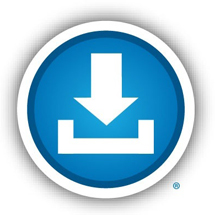
About Blue Button
The Blue Button symbol signifies that a site has functionality for customers download health records. You can use your health data to improve your health and to have more control over your personal health information and your family’s healthcare.
- Do you want to feel more in control of your health and your personal health information?
- Do you have a health issue?
- Are you caring for an elderly parent?
- Are you changing doctors?
- Do you need to find the results of a medical test or a complete and current list of your medications?
Blue Button may be able to help.
Look for the Blue Button symbol and take action using your personal health information.
Your Health Records
Health information about you may be stored in many places, such as doctors’ offices, hospitals, drug stores, and health insurance companies. The Blue Button symbol signifies that an organization has a way for you to access your health records electronically so you can:
- Share them with your doctor or trusted family members or caregivers
- Check to make sure the information, such as your medication list, is accurate and complete
- Keep track of when your child had his/her last vaccination
- Have your medical history available in case of emergency, when traveling, seeking a second opinion, or switching health insurance companies
- Plug your health information into apps and tools that help you set and reach personalized health goals.
You have a legal right to receive your personal health information. Blue Button is one of the ways this information may be made available to you. Look for the Blue Button symbol, and ask your health care providers or health insurance company if they offer you the ability to view online, download, and share your health records.
Your Rights
As Americans, we each have the legal right to access our own health records held by doctors, hospitals and others who provide healthcare services for us. And we have the option of getting our records on paper or electronically depending on how they are stored. You can exercise your rights by downloading your health records through an online portal, or by asking how to get a copy of your health records. Some doctors or hospitals may not be familiar with your rights to access your information about your own health. For more information about your health information rights, how to share your health information, and how to protect it, please see the Your Rights Infographic.
What kind of information is available to you?
It depends on whether you are getting information from your health care provider (doctor, hospital, nursing home, etc.), your health insurance company, or another source such as a drug store or a lab since each has different kinds of information. In general, you may expect to be able to electronically access important information such as:
- Current medications you are taking
- Any allergies you have
- Medical treatment information from your doctor or hospital visits
- Your lab test results
- Your health insurance claims information (financial information, clinical information and more)
Until recently, many health records were stored in paper files, so it wasn't very easy for you to access or use this information. But that is changing as more doctors and hospitals adopt electronic health records (EHRs) and other health information technologies, including mobile health apps.
Medicare beneficiaries can view and download their Medicare claims data in a more timely and user-friendly format than ever before. That information now covers three years of your health history, including claims information on services covered under Medicare Parts A and B, and a list of medications that were purchased under Part D. Look for the Blue Button symbol on the MyMedicare web site.
Veterans can find the Blue Button symbol on the MyHealtheVet website and download demographic information (age, gender, ethnicity and more), emergency contacts, a list of their prescription medications, clinical notes, and wellness reminders.
You may want to check back often as more and more organizations join the Blue Button movement. Online health records are not yet available to everyone, but access is rapidly growing, and if you ask for access you can help grow it faster.

